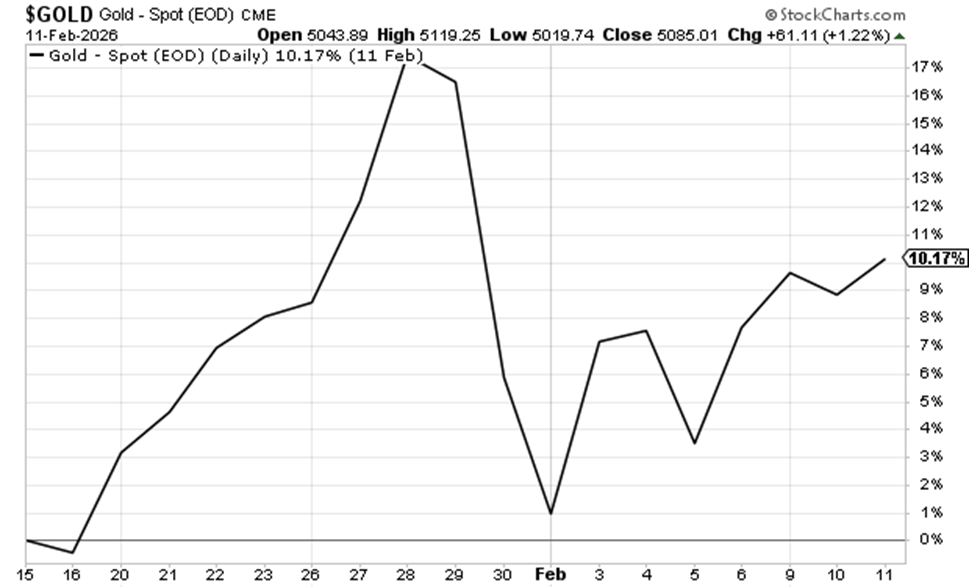US Markets Slide Amid Trade Tensions and Economic Signals
The S&P 500 Index ($SPX) (SPY) ended Thursday down -1.39%. The Dow Jones Industrials Index ($DOWI) (DIA) closed down -1.30%, while the Nasdaq 100 Index ($IUXX) (QQQ) fell -1.89%. March E-mini S&P futures (ESH25) decreased by -1.16%, and March E-mini Nasdaq futures (NQH25) declined by -1.56%.
Markets Reach Six-Month Lows
U.S. stock indexes dropped significantly on Thursday, hitting six-month lows. This downturn was primarily driven by rising trade tensions. President Trump threatened to impose a 200% tariff on European wines and other alcoholic beverages unless the EU rescinded a tax on American whiskey. After reiterating that he would not modify tariffs on steel and aluminum, the market saw an acceleration of losses, particularly as plans for further reciprocal tariffs on April 2 surfaced.
Economic Data Offers Mixed Signals
Despite the stock market’s slump, Thursday’s economic data presented some encouraging signs. Weekly initial unemployment claims unexpectedly decreased by -2,000 to 220,000, indicating a stronger labor market than the anticipated rise to 225,000. Additionally, the February PPI final demand was stable month-over-month, showing a year-over-year increase of +3.2%, slightly below the expected +3.3%. The core PPI, excluding food and energy, registered at -0.1% month-over-month and +3.4% year-over-year, both weaker than forecasts.
Concerns about tariffs undermining economic growth and corporate earnings have been weighing on stocks recently. Last week, President Trump elevated tariffs on Canadian and Mexican goods by 25% and increased the tariff on Chinese imports to 20%. Furthermore, amid ongoing trade tensions, the EU retaliated with tariffs on $28.3 billion worth of U.S. goods, and Canada introduced counter-tariffs on approximately $20.8 billion of U.S. products.
Focus Turns to Trade Policies and Consumer Sentiment
As the week continues, market participants will be closely monitoring U.S. trade policies. On Friday, the University of Michigan’s March consumer sentiment index is expected to decline by -1.2 to 63.5. Additionally, there is anticipation regarding Congressional action on a spending bill to prevent a government shutdown before the March 15 deadline.
Currently, the markets assess a mere 1% likelihood of a -25 basis point rate cut at the upcoming Federal Open Market Committee (FOMC) meeting on March 18-19.
International Markets and Interest Rates
International markets closed lower on Thursday as well. The Euro Stoxx 50 decreased by -0.58%, China’s Shanghai Composite Index fell by -0.39%, and Japan’s Nikkei Stock 225 dropped by -0.08%.
Interest Rate Movements
June 10-year T-notes (ZNM25) recorded an increase of +9.5 ticks on Thursday. The 10-year T-note yield fell by -4.2 basis points to 4.270%. T-notes rebounded from a one-week low, boosted by safe-haven buying amidst equity declines. The February PPI report, showing weaker-than-expected producer prices, also supported T-notes.
Initial concerns regarding tariffs boosting price pressures emerged when President Trump threatened higher tariffs on EU alcohol products. In contrast, the decline in weekly jobless claims introduced a hawkish sentiment towards Federal Reserve policy. Additionally, weak demand for a $22 billion 30-year T-bond auction negatively impacted T-notes, evident from the bid-to-cover ratio of 2.37, which was below the 10-auction average of 2.43.
European bond yields followed suit by declining; the 10-year German bund yield fell -2.2 basis points to 2.855%, while the 10-year UK gilt yield decreased by -4.5 basis points to 4.677%.
Stock Performance Highlights
Weakness in major tech stocks weighed down the overall market. Meta Platforms (META) faced a drop of more than -4%, and Apple (AAPL) fell by over -3%. Other significant declines included Tesla (TSLA), Alphabet (GOOGL), and Amazon (AMZN), which all experienced drops exceeding -2%. Microsoft (MSFT) also fell, down more than -1%.
Among the notable losers, Adobe (ADBE) plummeted by over -13% following a Q2 adjusted EPS forecast of $4.95-$5.00, which was short of the consensus of $5.00. UiPath (PATH) dropped more than -15%, and Trade Desk (TTD) slid after being downgraded by Cleveland Research. Conversely, Intel (INTC) led the gainers, rising by more than +14% after announcing Lip-Bu Tan as the incoming CEO.
Defensive utility stocks like Exelon Corp (EXC) gained due to the overall market slide, closing up more than +2%. Other utilities also performed well, rising more than +1% each.
SentinelOne (S) and Paccar (PCAR) reported declines based on weak future revenue forecasts and regulatory concerns, respectively. On a more positive note, Dollar General (DG) raised its full-year sales growth forecast beyond expectations.
Mining stocks thrived amid soaring gold prices and a four-and-a-half month high in silver prices. Newmont (NEM) closed up more than +4%, while Freeport McMoRan (FCX) and Southern Copper (SCCO) increased by more than +2% each.
Alkami Technology (ALKT) and FMC Corp (FMC) saw gains following favorable analyst upgrades.
Earnings Reports for March 14, 2025
Noteworthy earnings reports are expected from various companies, including AirSculpt Technologies Inc (AIRS), American Vanguard Corp (AVD), and others.
On the date of publication, Rich Asplund did not have (either directly or indirectly) positions in any of the securities mentioned in this article. All information and data in this article are solely for informational purposes. For more information, please view the Barchart Disclosure Policy here.
The views and opinions expressed herein are the views and opinions of the author and do not necessarily reflect those of Nasdaq, Inc.






